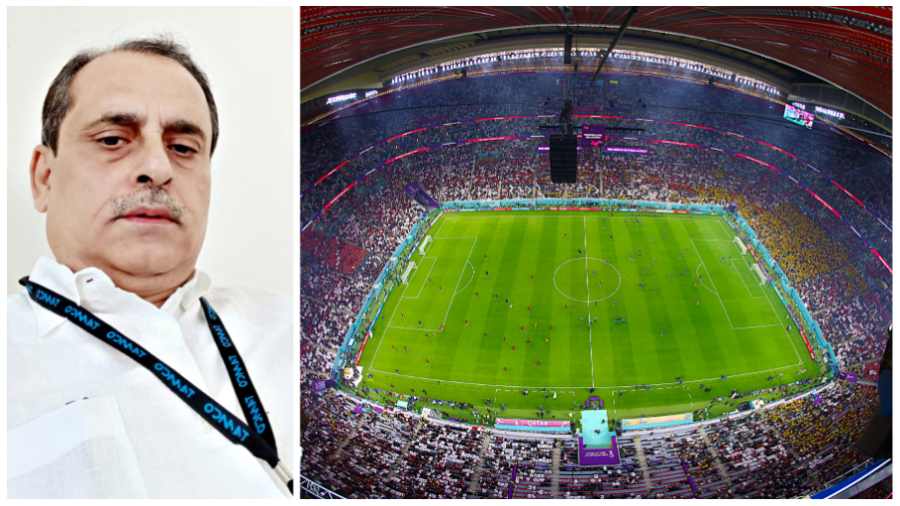A 66-year-old man in Uttarpara in the Hooghly district was among millions in West Bengal who watched on television the dazzling opening ceremony of the Fifa World Cup at the Al Bayt Stadium on Sunday evening.
But Subodh Kumar Banerjee is not just a football fan. He has had a crucial role in what is arguably the biggest sporting spectacle on the planet.
Transformers built by a firm founded by Banerjee are critical components of the power distribution system in the stadiums hosting the matches.
BMC Electroplast, which has a production unit in southwest Kolkata’s Thakurpukur, has supplied around 3,000 transformers to Qatar.
The transformers are not like the usual ones seen on Kolkata roads — which receive power from plants and supply it to domestic and commercial units.
“Called current transformers (the ones sent to Qatar), the instruments reside in the switchgear boards. They have two main functions. They keep track of the volume of electricity consumed in each feeder line. In case of a short circuit in a supply line, a current transformer helps in switching off supply to that feeder line,” said Banerjee, who did his electrical engineering in 1977, from what was then known as the Regional Engineering College, Durgapur (now called the National Institute of Technology, Durgapur).
The switchgear boards are usually in the underground electrical rooms below the stadiums, he said.
“When I saw the opening ceremony, I felt a sense of ownership. I knew everything would go off smoothly. But until it was over, there was a sense of anxiety,” said Banerjee.
He would have travelled to Qatar for the inauguration but an accident — he slipped and fell in his house — in 2021 led to a fractured left knee. He is still having to use a walker.
Between 2014 and 2018, Banerjee had to visit Qatar three times. “The stadiums were a heap of dust and construction material back then. I don't remember if they had their names finalised. To see the stadiums now, all decked out, is a surreal experience. I can't even recall the stadiums I went to,” he said.
But even back then, the scale of the work had Banerjee in awe. The men and machines kept working in the searing heat and amid a sea of dust.
“During the first trip, I was driving to a stadium when the car had a flat tyre. As the driver started to replace it, I rolled the window down. A gust of wind, that felt like fire, hit me. I felt my cheeks burning,” he said.
The transformers built in Thakurpukur were approved by Qatar Electricity & Water Corporation, commonly known as “Kahramaa”, in charge of the implementation of an integrated infrastructure for the tournament.
Banerjee’s firm supplied the transformers via Tamco Switchgear (Malaysia), an erstwhile L&T company but currently controlled by power equipment major Schneider.
“Our company is a vendor of Tamco. We have worked with them before,” said Banerjee.
Designing the prototype and getting the same approved was a tedious process because of the stringent norms of Kahramaa. Job done, now Banerjee wants to watch every bit of the Cup.
A regular at the Mohun Bagan ground in his school and college days, Banerjee played football and hockey in his youth. His money is on his favourite team this time.
“Brazil are the favourites. This World Cup might be the moment of glory for Neymar. He is Bohemian. But he has class,” said Banerjee, who lives with his wife and son. His daughter is settled in Pune.
Banerjee started the factory with his late friend, Santanu Mitra, in 1980. The two were roommates in the engineering college.
Now, the company has four directors, including Banerjee and Siddhartha Mitra, brother of Santanu Mitra. There are around 100 workers.
Banerjee said that Bengal used to be the hub of the electrical engineering industry when she started. It pains him to see the steady decline in the following decades.
“We are to blame. It is our collective fault,” he said.
